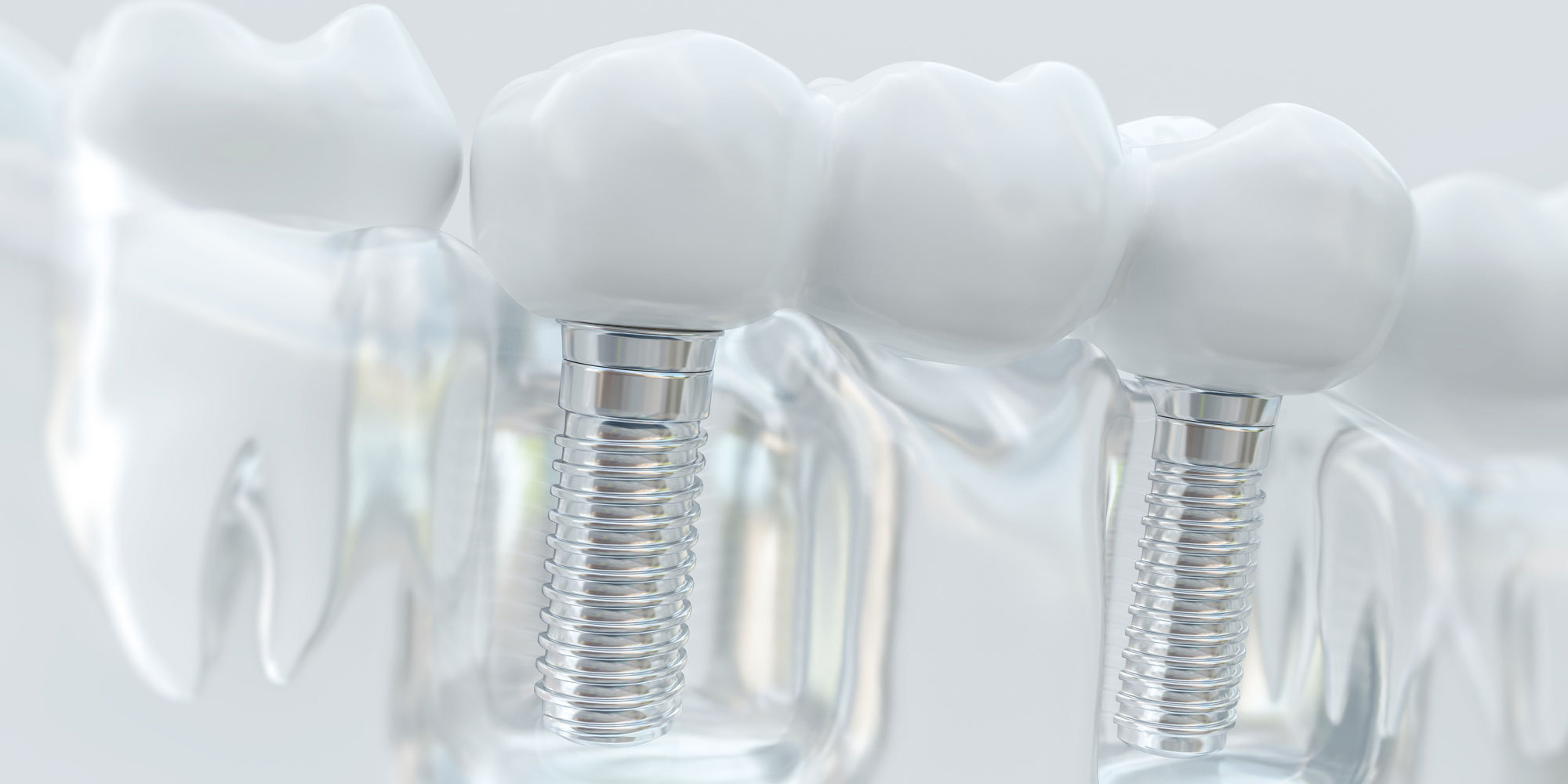

Dental Implants - Campbell, CA
The Lasting Solution for a Single Missing Tooth
"Implants and Crowns Gave Me a Complete Smile "
Schedule NowLong-Lasting, Life-Changing Dental Implants
Missing teeth can be embarrassing, causing people to hide their smile and lose their self-esteem. The space that missing teeth create can easily become infected with bacteria, causing other teeth to shift out of place, and making it difficult for people to speak or eat correctly. The team at Campbell Smile are sensitive to the hardship a missing tooth can create. We provide dental implants so that our patients can regain their self-confidence, improve their health, and approach life boldly.
Installing implants is a complex procedure that requires us to replace their missing teeth in a safe and natural way. We know that there are multiple dental providers to choose from, so the team at Campbell Smile are constantly looking for ways to improve the overall experience of our patients. Our office is located in Campbell and we offer patients the opportunity to restore missing teeth in a way that looks natural and beautiful.
Find out if you're a
candidate for dental implants
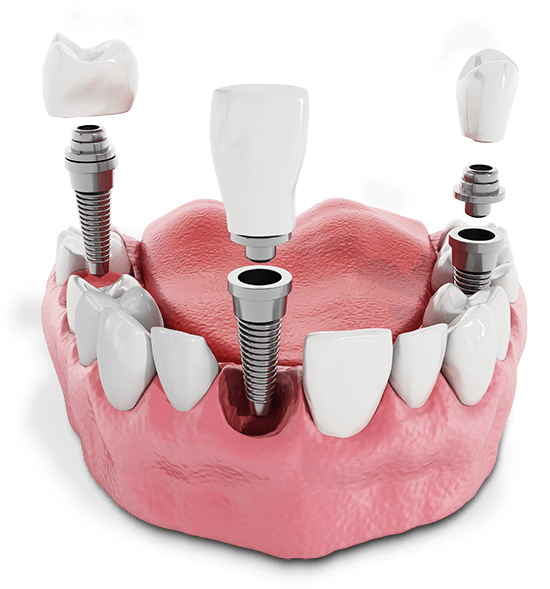
Answer the Following Questions To Learn more about our pricing and financing options.

Facts from the American Academy of Implant Dentistry (aaid.com)
- More than 30 million Americans are missing all their teeth in one or both jaws
- 15 million people in the U.S. have crown and bridge replacements for missing teeth
- 3 million have implants and that number is growing by 500,000 a year
- 10% of all U.S. dentists place implants but that is increasing
- The success rate of implants has been reported in scientific literature as 98%
- Implants performed by U.S. dentists 5,505,720 (2006)
- Implants performed by U.S. general dentists 3,103,930 (2006)
- The dental implant market in the U.S. is projected to reach $5 billion by 2018

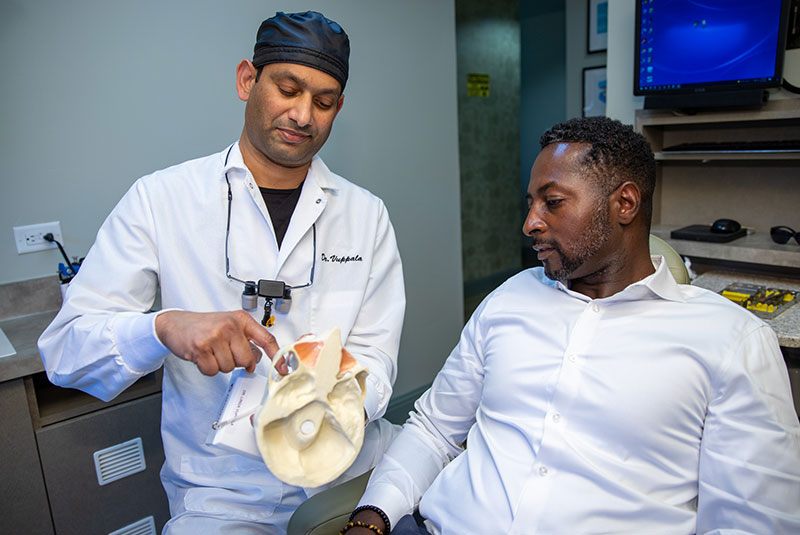
Questions to Ask When Selecting an Implant Dentist
- What treatment options do you use to restore missing teeth?
- How many implant procedures have you performed?
- What’s your success rate?
- What’s your education and training in implant treatment?
- Which technique and type of replacement teeth or appliance do you recommend for me, and why?
- What steps are involved in the process and where and by whom are they performed?
- What should I expect throughout the process in terms of pain, recovery time, eating, etc.?
- Will I have teeth throughout the process?
- What type of anesthesia do you use?
- What are the risks of the treatment option you’re recommending?
- What are the benefits?
- Can you share before-and-after pictures of other patients you have treated?
The Process of Installing Implants
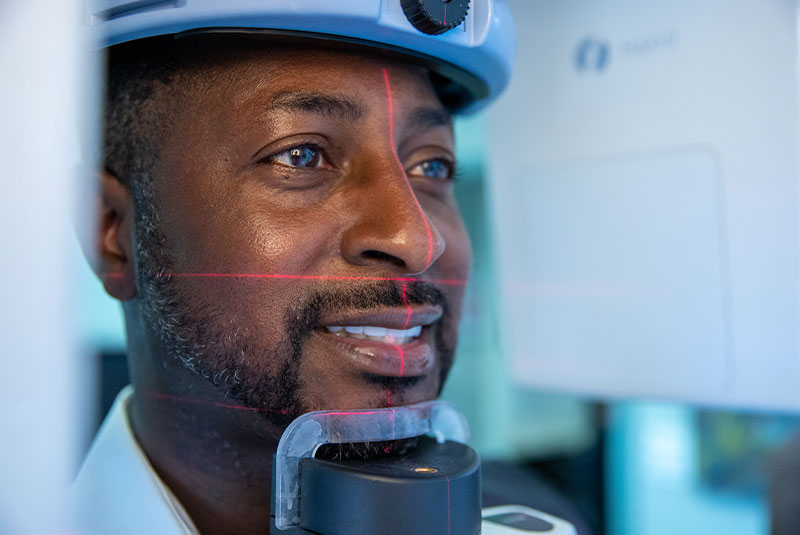
Teeth restored with implants will not get cavities. A replacement tooth, or crown, does not decay like a natural tooth. However, you still need to brush, floss and care for it and your surrounding natural teeth in the same manner as natural teeth. Regular professional cleanings and dental checkups are also essential.
Campbell Dental Implants
Caring for Dental Implants
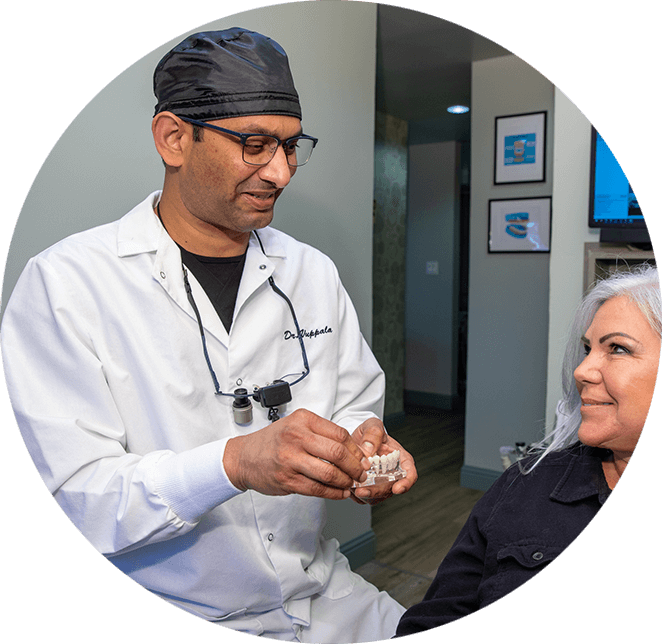
Consultation
Implant FAQ
I need to replace two missing teeth next to each other. Can I just have one implant placed and attach it to one of my natural teeth and make a bridge?
Generally, this is not a good idea. We find that it is generally much better not to attach implants to teeth. We frequently attach implants to each other, which can improve strength and works well. So in a case like this, although it may be more expensive in the short term to place two implants instead of one, the long-term success is likely to be much better with the two implants.
I lost my upper back teeth on one side and have gone for years without doing anything about it. My sinuses always seem to bother me more on that side than on the side that I have back teeth. Could these problems be related to one another?
In a large majority of people who are missing their upper back teeth for a long period of time, is the increasing downward growth of the maxillary sinus. At birth, it is the size of a pea and progressively grows as the skull matures. This growth is at the expense of the surrounding bone. If you are considering replacing those upper back teeth with fixed teeth that stay in all the time, it may be necessary to perform a sinus elevation procedure to allow room for placement of dental implants into this area to support those teeth. This involves placement of bone and/or bone substitutes into an area which was previously occupied by the lower part of the maxillary sinus. Most importantly, this procedure increases the available bone use to place implants and restore the missing back teeth.
I've had dentures for several years and have lost a lot of jawbone. My lower dentures are floaters and I need help. Is there still hope for me?
In most cases, with the new options available today in the field of dental implants, some form of treatment is possible. We encourage people to get help as soon as possible if they are already having some problems with their current situation. These problems include excessive use of denture adhesives, chewing only soft food, unable to taste some foods, constant mouth sores, unhappy with the appearance of one's teeth and bite position (in some cases the nose and chin getting closer together). The sooner we correct the problems with dental implants, the more choices one has available for treatment. If you have any or all of the above symptoms, implants can very well be the answer for you.
I am missing all of my teeth and am now wearing a full upper and lower denture. I can no longer tolerate my lowers. Will I need an implant for every tooth I am replacing on the lower jaw?
It is not necessary to have an implant for every tooth that is being replaced. The number of implants necessary to provide support depends on the type of implants used and the type of teeth (removable vs. non- removable) that will be attached to the implants. A thorough oral exam and panoramic x-ray is all that is necessary in most cases, to determine which implant can be used and how many must be used. Sometimes additional X-rays or CT scans are used in more complicated cases.
I consulted a dentist several years ago about using implants to replace my lower denture and he told me that I did not have adequate bone available to place enough in-the-bone implants without danger of fracturing my now fragile jawbone. Are there any alternatives?
Because of the advances in the field of implantology, there are now more choices and techniques. It is rare for a person to not be able to receive an implant or a combination of implants. Today we have available many types of implants designed to accommodate multiple problems.
I had a root canal on a tooth that fractured and now it has to be removed. Can it be replaced with an implant or do I have to have a bridge or a partial?
Teeth that have root canals can fracture more easily than other teeth because they are weaker and somewhat dehydrated. They can sometimes be as brittle as glass. In the past, the best available treatment was to remove the tooth and file down the adjacent teeth to make a bridge - caps on the adjacent teeth with an attached "dummy" tooth between. Sometimes this still is the only way. However, in many cases an implant can replace the fractured tooth and we will not need to grind down a tooth to at all.
Questions Answered on This Page
Definition of Dental Implant Terminology
Find out how life-changing dental implants can be for you!
Reserve your dental implant consultation in Campbell, CA today.


